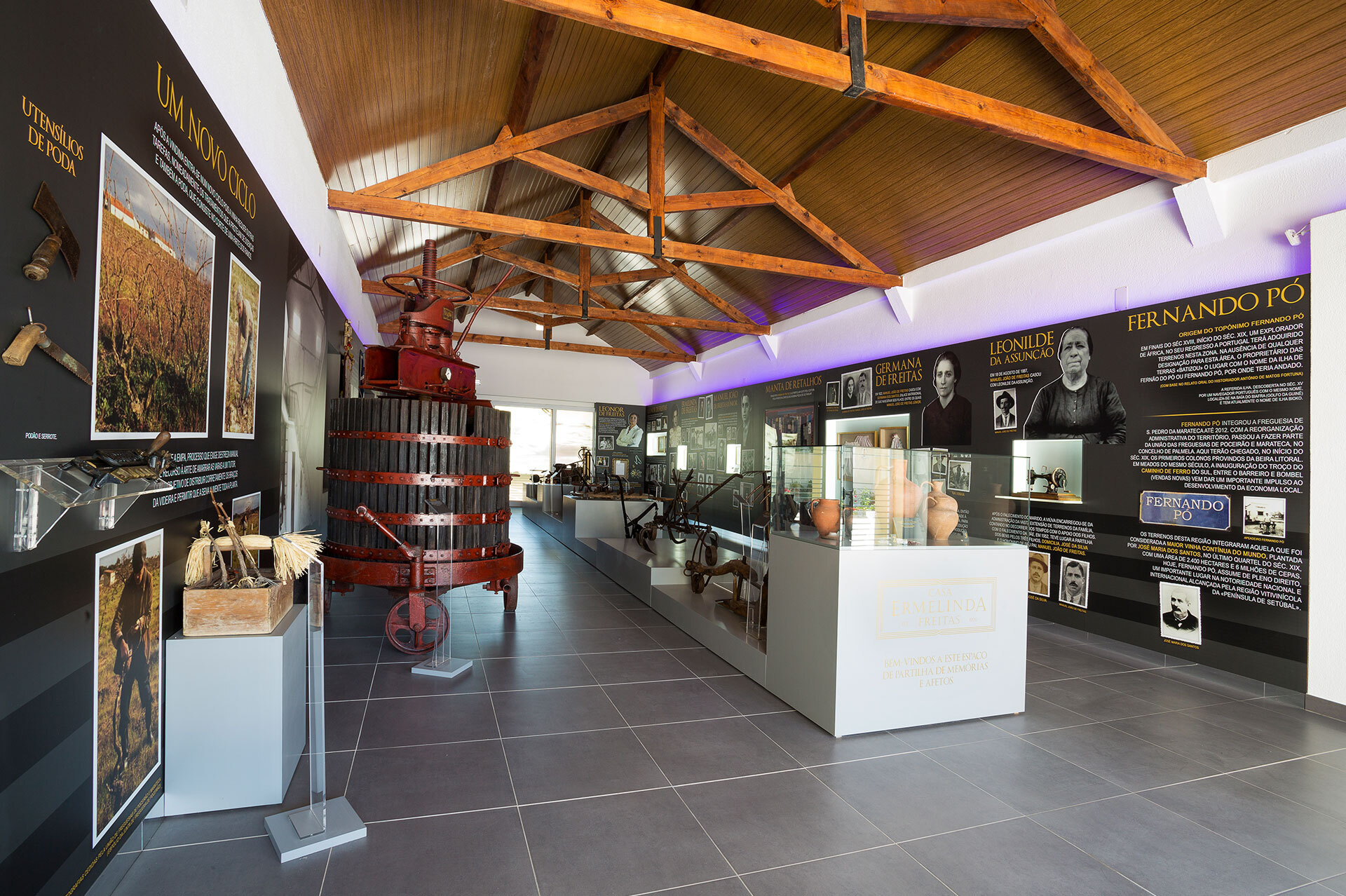8 million bottles
Currently, more than 6 million bottles are produced and there is capacity for the fermentation of 10 million litres in temperature-controlled stainless steel vats. More than 35% of production is exported to Brazil, Angola, Mozambique, China, Japan, Germany, Austria, Switzerland, France, Luxembourg, Sweden, Denmark, Finland, Norway, with a strong focus on the United Kingdom and United States of America. The main commercial brands are:
Setúbal Peninsula Region
Dom Campos, Terras do Pó, Casa Ermelinda Freitas.
DO Palmela
Dona Ermelinda, Quinta da Mimosa, Leo d’Honor, Casa Ermelinda Freitas Espumante
DO Setúbal
Casa Ermelinda Freitas Moscatel de Setúbal
